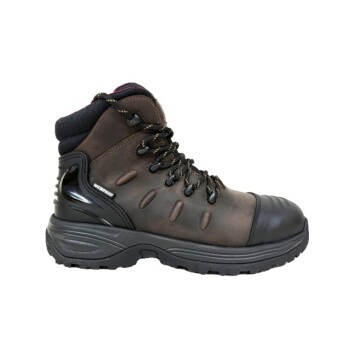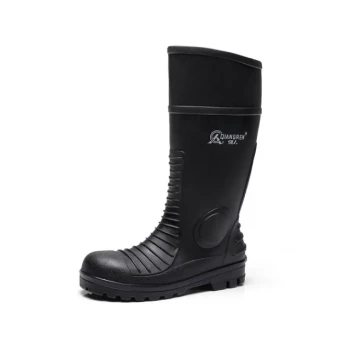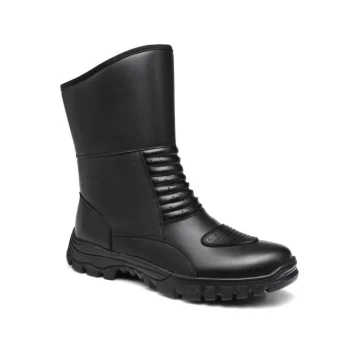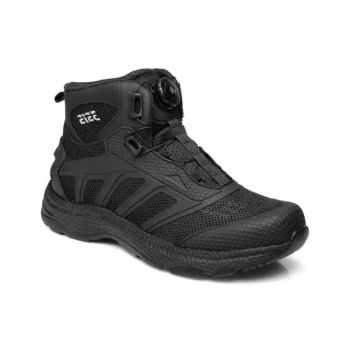For farm work, the most effective alternatives to cowboy boots are rubber boots, traditional leather work boots, and PVC safety boots. Each type is engineered to solve specific challenges that cowboy boots may not handle well, from perpetually wet and muddy conditions to environments with chemical or impact hazards.
While cowboy boots offer general durability, optimal farm footwear is about specialization. The right choice depends entirely on your primary work environment—choosing a boot designed for water, rough terrain, or chemical exposure will always outperform a generalist option.
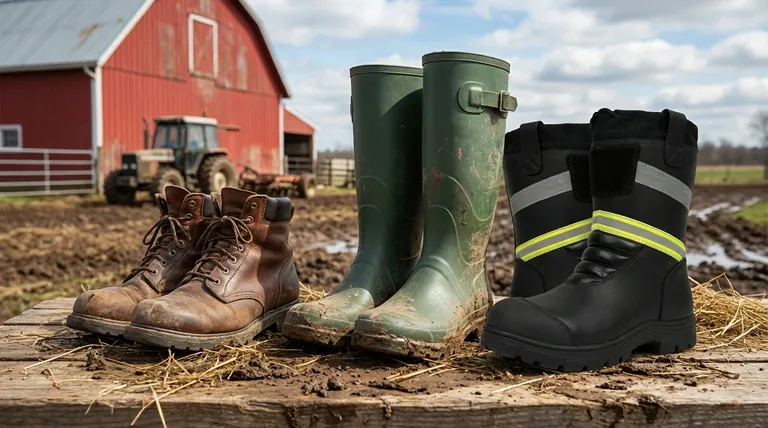
Why Look Beyond the Cowboy Boot?
While iconic and durable, the traditional cowboy boot design presents practical limitations for the varied demands of modern farm work. Understanding these shortcomings clarifies why a specialized alternative is often a better investment.
The Breathability Problem
Cowboy boots, particularly those with synthetic linings, often lack breathability. During long hours of hard labor, this traps heat and sweat, creating an environment ripe for discomfort, foot odor, and even fungal infections.
The Break-in Period
A new pair of quality leather cowboy boots can be notoriously stiff. This often requires a significant break-in period, which can cause painful blisters and discomfort when you can least afford it.
Lack of Specialized Protection
While the thick leather offers good general protection, cowboy boots are not purpose-built for specific farm hazards. They typically lack features like certified safety toes or resistance to potent agricultural chemicals.
A Breakdown of the Top Alternatives
Each alternative excels in a specific context. The key is to match the boot's features to your most common tasks and working conditions.
Rubber Boots (Wellingtons): The Wet-Weather Workhorse
These boots are the definitive choice for wet, muddy, and mucky environments. Their primary advantage is being completely waterproof, making them essential for pressure washing, mucking out stalls, or working in irrigated fields.
Leather Work Boots: The All-Terrain Contender
This category refers to traditional lace-up work boots. Their core strengths are durability and superior ankle support. The lace-up design allows for a secure, customized fit, providing stability on uneven, rough ground.
PVC Boots: The Safety Specialist
Polyvinyl chloride (PVC) boots are designed for hazardous environments. They are highly resistant to chemicals, acids, and fats, making them ideal for work in dairies or facilities using strong cleaning agents. Many also feature reinforced steel or composite toe caps for impact protection.
Understanding the Trade-offs
No single boot is perfect for every task. Being aware of the limitations of each alternative is crucial for making an informed decision.
Rubber Boots Lack Breathability
The very feature that makes rubber boots waterproof also makes them non-breathable. Like cowboy boots, they can become hot and sweaty during warm weather or intense work.
Leather Work Boots Require Maintenance
High-quality leather work boots are not a "set it and forget it" solution. To prevent drying and cracking and to maintain water resistance, they require regular cleaning and conditioning, much like cowboy boots.
PVC Boots Can Be Stiff and Heavy
The heavy-duty protection offered by PVC boots can come at the cost of comfort and flexibility. They are often stiffer and heavier than other options, making them less ideal for tasks that require covering long distances on foot.
Making the Right Choice for Your Farm
To select the best footwear, analyze your daily reality and choose the tool that best fits the job.
- If your primary focus is working in wet, muddy conditions: A pair of quality rubber boots is your most practical and effective solution.
- If your primary focus is all-day comfort and support on varied terrain: A traditional lace-up leather work boot offers superior stability and a more secure fit.
- If your primary focus is safety around chemicals or heavy equipment: A PVC boot with a reinforced toe cap is the non-negotiable choice for protection.
Ultimately, selecting the right footwear is a critical investment in your daily safety, comfort, and productivity.
Summary Table:
| Boot Type | Best For | Key Feature | Key Limitation |
|---|---|---|---|
| Rubber Boots | Wet, muddy conditions | Completely waterproof | Poor breathability, can be hot |
| Leather Work Boots | All-day comfort, varied terrain | Superior ankle support & durability | Requires regular maintenance |
| PVC Boots | Chemical hazards, heavy equipment | Chemical resistance, safety toe | Can be stiff and heavy |
Need Durable, High-Quality Farm Footwear for Your Business?
As a large-scale manufacturer, 3515 produces a comprehensive range of durable work boots for distributors, brand owners, and bulk clients. We can provide the exact alternatives you need:
- Reliable Rubber Boots for waterproof performance.
- Sturdy Leather Work Boots for all-day support.
- Protective PVC Boots with certified safety toes.
Our production capabilities encompass all types of safety and work footwear. Let us help you equip your customers with the right boots for the job.
Contact our team today to discuss your production needs and get a quote!
Visual Guide
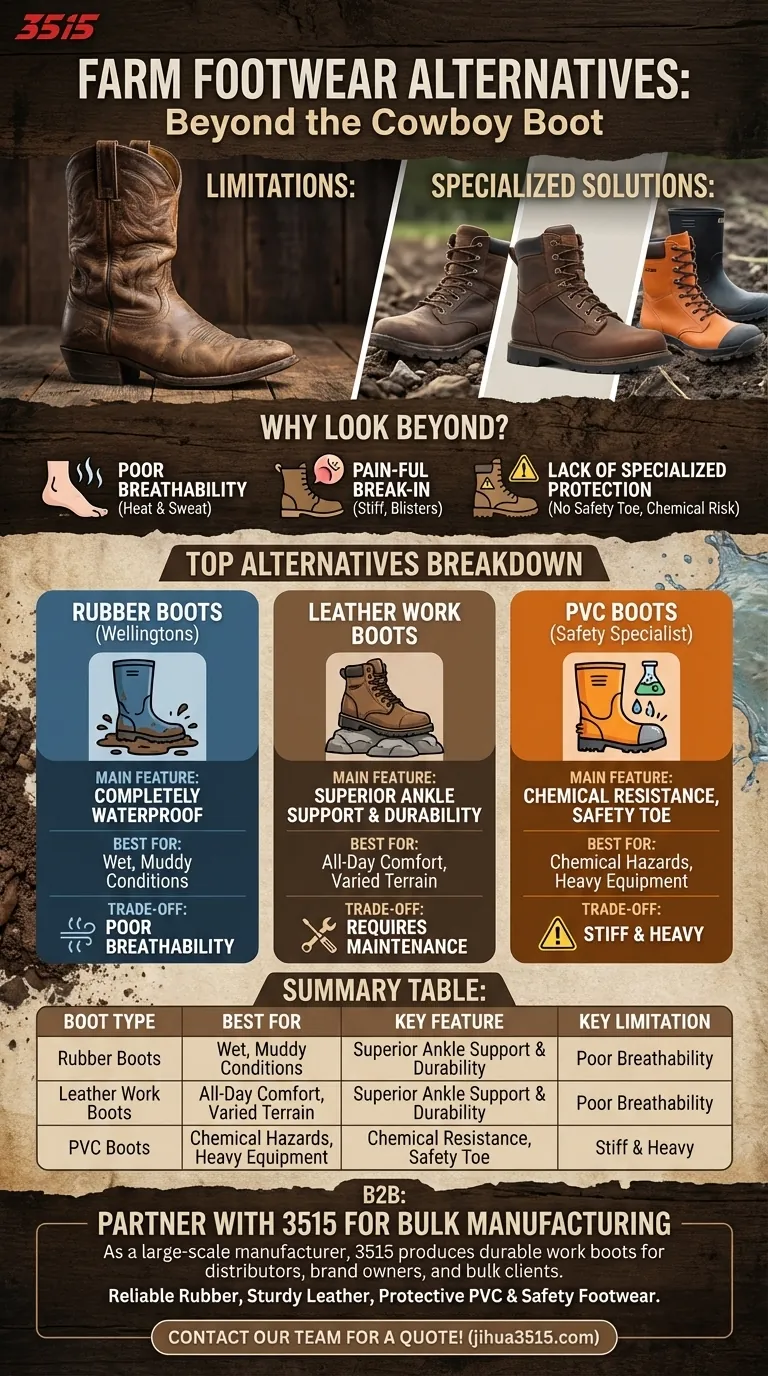
Related Products
- High Performance Fire-Retardant Waterproof Safety Boots
- Premium High-Cut Waterproof Safety Boots Manufacturing & Wholesale Solutions
- Premium Wholesale Waterproof Safety Boots High Performance Protection for Industrial Markets
- Customizable Anti-Smash Safety Boots for Wholesale & Private Label Manufacturing
- Heavy-Duty Waterproof Nubuck Safety Boots Safety Shoes for Bulk Supply
People Also Ask
- How do work boots provide impact and compression resistance? The Science Behind the Protective Toe Cap
- Why is safety the top priority when selecting oilfield work boots? Essential Protection for High-Risk Environments
- How do professional construction boots improve operational efficiency? Boost Site Productivity with Advanced Footwear
- What physical protections are provided by the S1 standard and integrated steel toecaps in industrial safety boots? Ensure Ultimate Foot Safety & Hazard Protection
- Why are professional safety shoes required during heavy-duty girder erection? Essential Protection for Infrastructure













